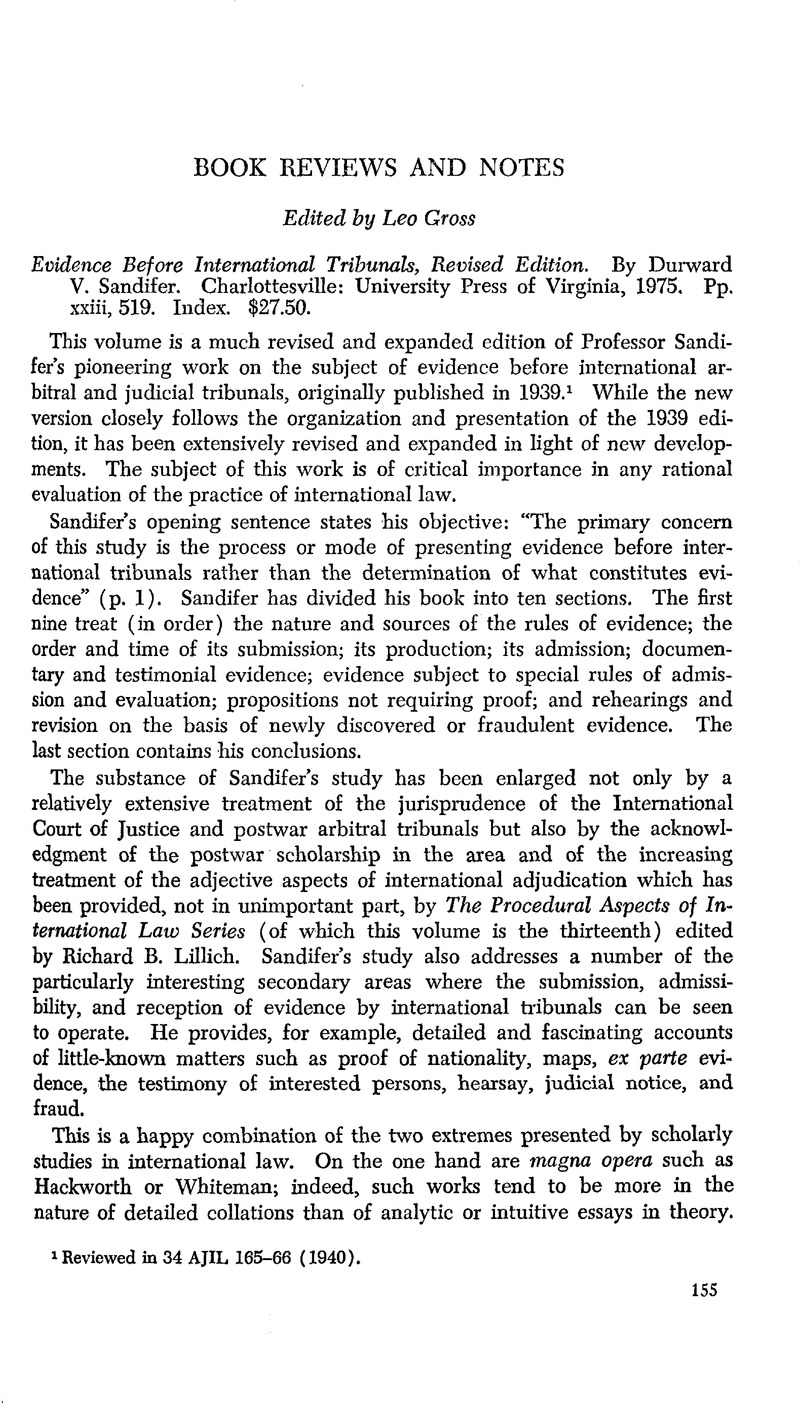No CrossRef data available.
Article contents
Evidence Before International Tribunals, Revised Edition. By Durward V. Sandifer. Charlottesville: University Press of Virginia, 1975. Pp. xxiii, 519. Index. $27.50.
Published online by Cambridge University Press: 27 February 2017
Abstract

- Type
- Book Reviews and Notes
- Information
- Copyright
- Copyright © American Society of International Law 1977
References
1 Reviewed in 34 AJIL 165-66 (1940).
2 The reviewer must confess to a degree of parti pris in these observations, having served as Counsel to the Applicant States in the so-called “Second Phase” (i.e., what was otherwise expected to have been the Merits) of these proceedings.
3 A large part of the Applicants’ rationale in this respect stemmed from the extraordinarily detailed written pleadings—the Counter-Memorial alone ran to ten volumes —submitted by South Africa, which contained a diligently laid out description of all aspects of life in South West Africa, including particularly a detailed enumeration of all the relevant statutes and regulations implementing the policy of apartheid in the territory.
4 One must note in passing that the narrower but nevertheless very useful study by Gillian White on The Use of Experts by International Tribunals (1965) was, by reason of its publication date, not able to consider the issues just described.
5 In particular, in the context of ex parte evidence (discussed at pp. 240-64) it should not go unnoted that the Applicants made an early offer to record testimony , by way of deposition or interrogatory in order to condense the time and effort required for the conduct of the oral proceedings themselves and to reduce the burden of the parties and the Court. Although the Court was squarely invited to permit such techniques, it acceded to Respondent's insistence that it not be deprived of the opportunity to present its witnesses in person.
6 One minor formalistic comment on the 1975 edition would be to regret that, perhaps for economic reasons, the appendices which accompanied the 1939 edition have been removed. These consisted of the relevant statutory and rules material relating to the International Court as well as other relevant provisions of international conventions.


